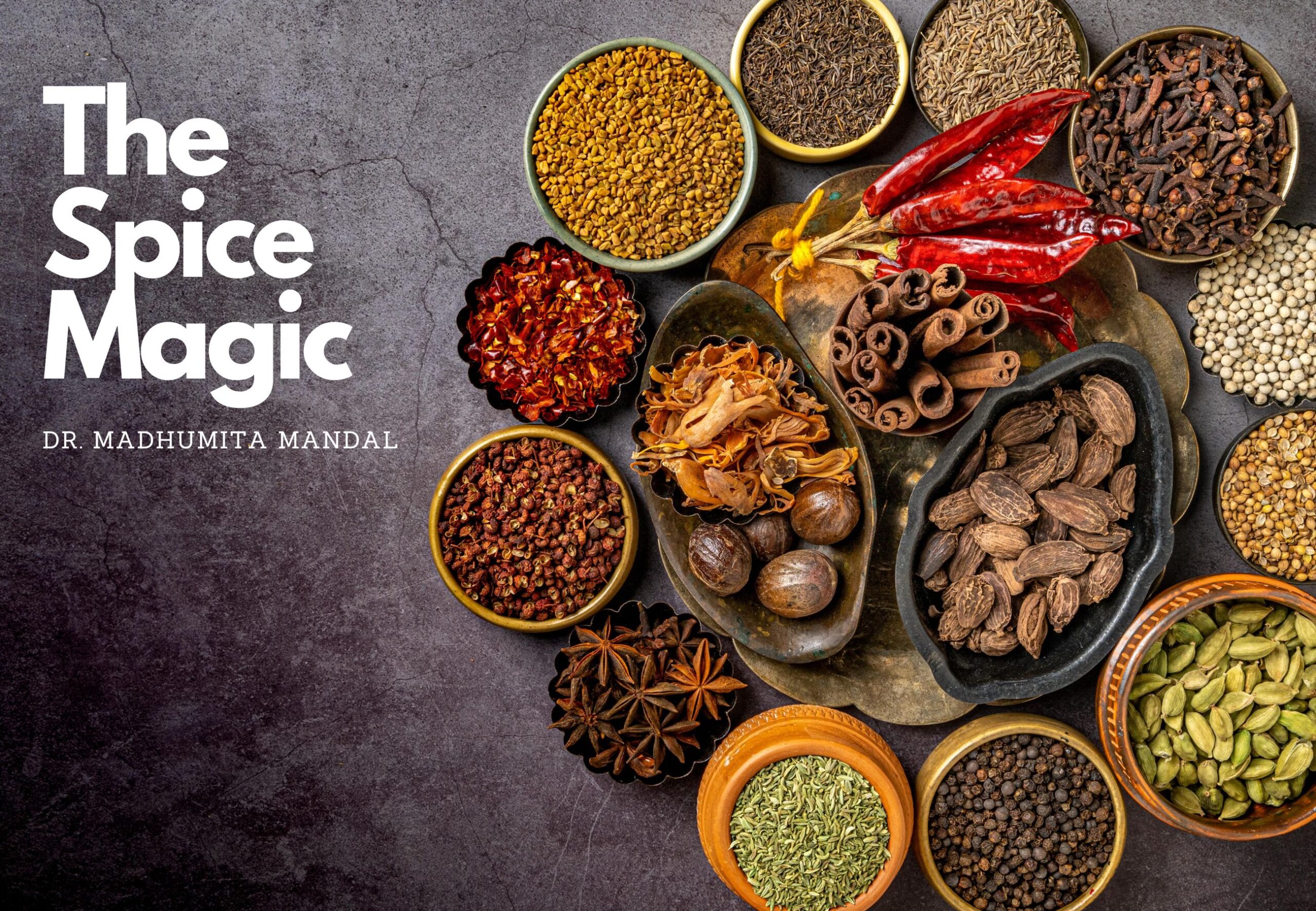Indian cuisine is renowned for its vibrant flavors and aromatic spices, which not only contribute to its unique taste but also offer a plethora of health benefits. The spice magic is real! Among these, cardamom, clove, black pepper, and bay leaf are particularly noted for their anti-inflammatory properties and their role in promoting health and well-being. Here’s a closer look at each of these spices and the benefits they offer:
Cardamom (Elaichi)
Cardamom, often referred to as the “queen of spices,” is rich in compounds that can help fight inflammation. It’s known for its antioxidant properties, which can reduce inflammation and protect cells from damage. Cardamom is also beneficial for digestive health, helping to soothe the digestive system and relieve bloating and other digestive issues.
Clove (Laung)
Clove is packed with antioxidants and compounds that have powerful anti-inflammatory properties. Eugenol, the main component of clove oil, is particularly effective in reducing inflammation and pain. Cloves are also known for their antimicrobial properties, making them beneficial for oral health; indeed, clove oil is a common remedy for toothaches and gum pain. Spice magician!
Black Pepper (Kali Mirch)
Black pepper is more than just a seasoning; it’s a medicinal spice that has been used in Ayurvedic medicine for thousands of years. It contains piperine, a compound that not only enhances the bioavailability of other nutrients but also has anti-inflammatory and antioxidant properties. Black pepper can improve digestion and promote the health of the digestive tract, and it’s also thought to boost metabolism.
Bay Leaf (Tej Patta)
Bay leaves are not just a flavoring agent but also have several health benefits. They are rich in compounds that have potent anti-inflammatory and antioxidant effects. Bay leaves can help reduce inflammation, improve digestion, and reduce the risk of heart disease and diabetes. The spice is also known for its stress-relieving properties, which can be attributed to the presence of linalool, a compound that helps lower levels of stress hormones in the body.
Turmeric (Haldi): Turmeric is perhaps the most well-known spice for its health benefits, largely due to the compound curcumin. Curcumin has been widely studied for its potent anti-inflammatory properties and its role in cancer prevention and treatment. It has been shown to inhibit the growth of various cancer cells and reduce inflammation, which is a critical factor in the prevention and treatment of cancer.
Ginger (Adrak): Ginger contains gingerol, a substance with powerful anti-inflammatory and antioxidant effects. Research suggests that ginger can help reduce oxidative stress, which is the result of having an excess amount of free radicals in the body, thus potentially reducing the risk of chronic diseases like cancer.
Cinnamon (Dalchini): Cinnamon is loaded with antioxidants that have anti-inflammatory effects. Some studies suggest that cinnamon may help reduce the risk of cancer by inhibiting the growth of cancer cells and the formation of blood vessels in tumors.
Fenugreek (Methi): Fenugreek has been shown to have anti-inflammatory effects and may help reduce the risk of cancer. It contains compounds that can induce apoptosis (programmed cell death) in certain cancer cells.
Fennel (Sauf): Anethole, a major constituent of fennel, has been shown to have anti-inflammatory and anticancer effects. Fennel extract has shown potential in inhibiting the growth of tumors in animal studies.
Cumin (Jeera): Cumin is known for its digestive health benefits and may also have anti-cancer effects. Some studies suggest that cumin could inhibit the growth of certain types of cancer cells.
Incorporating These Spices into Your Diet
These spices can be easily incorporated into your daily diet in various ways. They can be added to teas, soups, stews, curries, and even baked goods, not only enhancing the flavor of these dishes but also boosting their nutritional profile. For example:
Cardamom can be added to tea or coffee, or used in desserts for a sweet, aromatic flavor.
Clove can be used in spice blends, infused into oils, or added to hot beverages for its warming properties.
Black Pepper can be freshly ground over any dish to add a bit of heat and enhance the absorption of nutrients from other foods.
Bay Leaf is perfect for slow-cooked dishes, where it imparts a subtle depth of flavor; remember to remove the bay leaves before serving, as they can be a choking hazard and are not meant to be eaten whole.
It’s important to note that while these spices have been shown to have anti-inflammatory and anti-cancer properties in various studies, most research has been conducted in vitro (in test tubes) or in animal models. More human studies are needed to fully understand the potential health benefits and the effective dosages. Additionally, incorporating these spices into a balanced diet can contribute to overall health but should not replace conventional cancer treatments. Always consult with a healthcare provider for advice on using dietary supplements or making significant changes to your diet, especially if you have health conditions or are undergoing treatment for cancer.
Conclusion
Indian spices like cardamom, clove, black pepper, and bay leaf are not only key to creating flavorful dishes but also offer significant health benefits, particularly in terms of their anti-inflammatory properties. Incorporating these spices into your diet can be a delicious and natural way to promote overall health and well-being.


